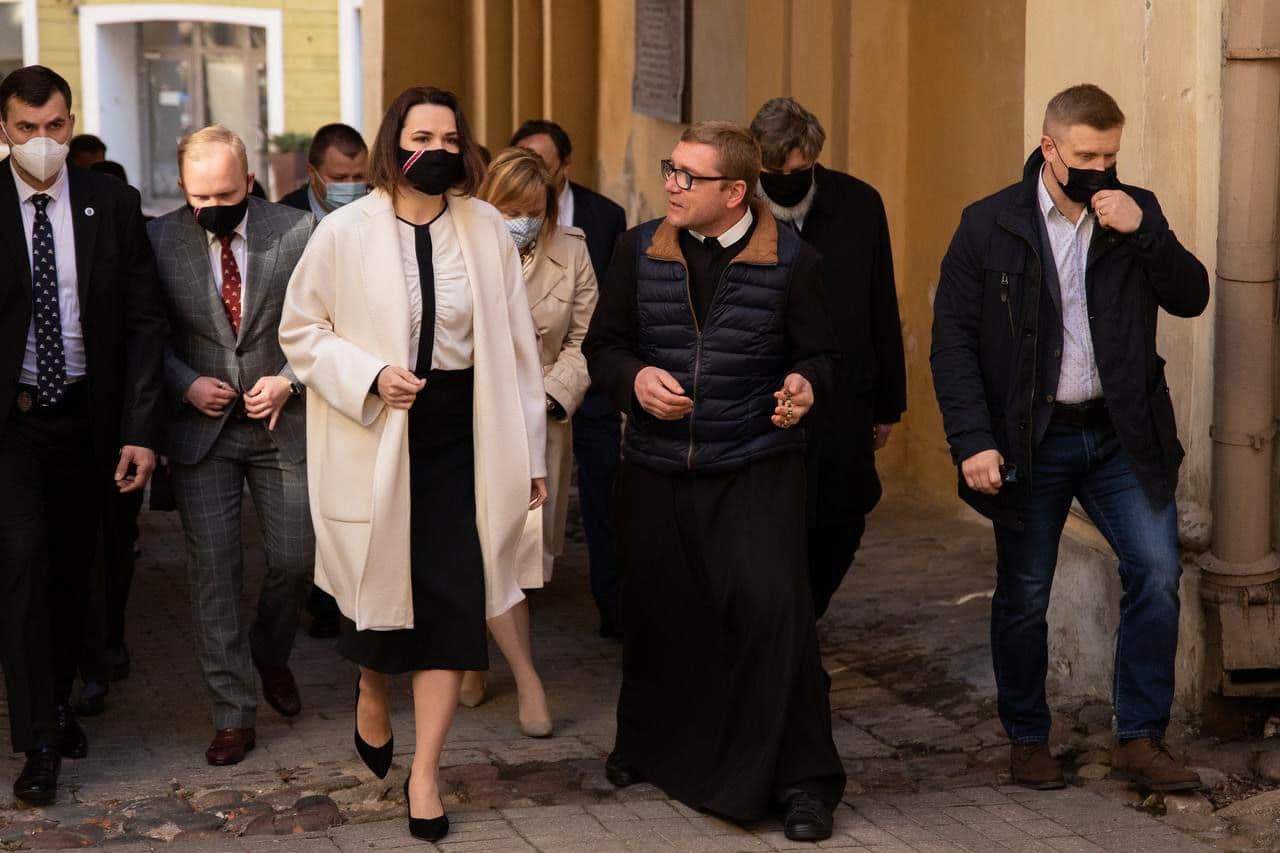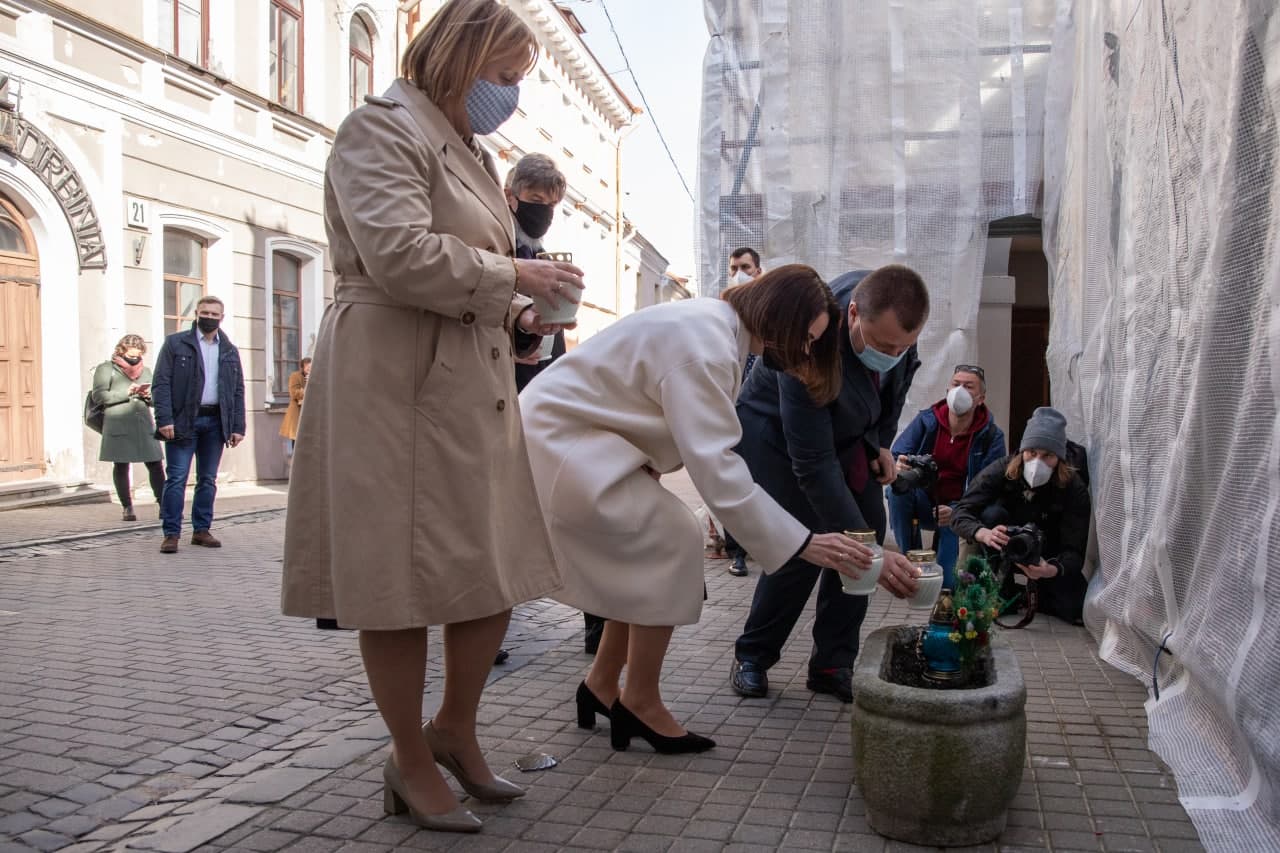Sviatlana Tsikhanouskaya, along with US Ambassador to Belarus Julie Fisher, Polish Ambassador to Belarus Artur Michalski, Lithuanian Ambassador to Belarus Andrius Pulokas, Deputy Foreign Minister of Lithuania Mantas Adomėnas visited Basilian Gates.
They entered the Greek-Catholic Church of the Holy Trinity and visited Konrad’s cell. It is also known as the Adam Mickiewicz cell, where Adam Mickiewicz was in prison awaiting sentencing on the “Filamaty and Filarety” case. He stayed there with the well-known Belarusian-Polish-Lithuanian figure Ihnat Damiejka.
Sviatlana Tsikhanouskaya noted: “Here, in the 1820s, in this prison, such heroes as Adam Mickiewicz – simply for the struggle for freedom and independence of their country – were kept waiting for trial. Mickiewicz was only 25 years old. Walking into the cell, I thought of all the young people caged in those tiny, dark cells. Hundreds of Belarusians are now imprisoned for political reasons, and they are all our modern heroes. We must do everything to protect, free, and rehabilitate them”.
After that, Tsikhanouskaya and ambassadors laid flowers at the entrance to the Belarusian gymnasium, which was located here at the beginning of the 20th century, before signage Maksim Haretski and Natallia Arsienyeva, the author of the Belarusian spiritual anthem “God Almighty” (“Mahutny Bozha”).
The diplomats then lit candles in front of the Gate of Dawn (Vostraya Brama), where the holy icon, recognized as sacred by both the Orthodox and Catholics, is located. Gate of Dawn is a place that inspired Maksim Bahdanovich when he wrote one of the people’s hymns of Belarus, “Pahonia”.









